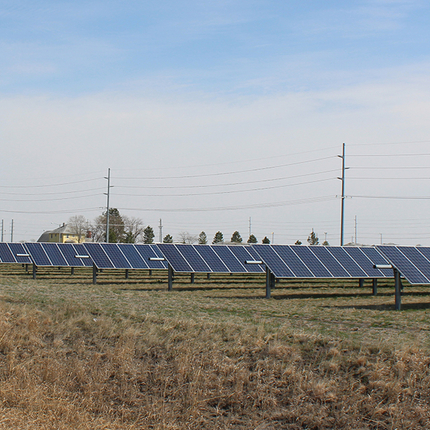By Stephanie Enloe, former staff member
As the cost of renewable energy plummets, rural Iowans can benefit from increasing opportunities to exercise energy choice. Rural areas not only have access to more space and special incentives programs, but the majority of rural Iowans are member-owners of rural electric cooperatives (RECs).
Unlike large investor-owned utilities, RECs are member-owned, non-profit entities that must serve the interests of their members. While this arrangement allows co-ops to be more flexible, they also have fewer resources to invest in new projects. Community solar programs are therefore becoming an important tool for RECs to meet growing customer demand for the cost-savings, public health benefits, and environmental advantages from renewable energy.
Community solar projects enable interested co-op members to invest in a shared solar generating facility. Such programs are attractive to individuals who are interested in renewables, but unable to install their own system. Members who invest in a share of a community solar program benefit from credits on their energy bill, often for 20 or more years. The Western Iowa Power Cooperative, Hawkeye REC, and Farmers Electric Cooperative are examples of Iowa co-ops with successful community solar programs.
As America moves toward a renewable energy future, rural residents have a unique opportunity to own and invest in the energy systems that fuel their homes, farms, and businesses. As much as possible, RECs can and should utilize resources such as the USDA Rural Energy for America Program to take advantage of this opportunity.





